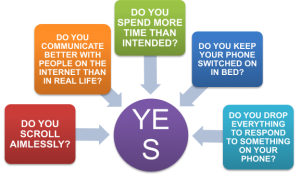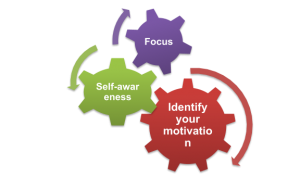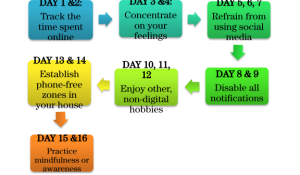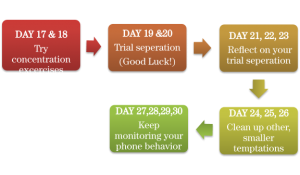How to Break Up with Your Phone
How to Break Up with Your Phone
Catherine Price
Advanced technology has plunged us, head-first, into the New Age. This has its advantages as well as drawbacks. It is rare to see anybody who isn’t hooked to their phones, children included. This begs the question, how does one know if they are addicted? Dr. David Greenfield developed the Smartphone Compulsion Test precisely for this question. Some of the questions can be seen below:

If your answer is a resounding YES then you might have a problem with addiction to your phone. But not to worry, you are not alone.
When someone says science experiments, the image of rats being given either food or electric shocks as a way of influencing their behavior immediately comes to mind. Such research depends on a hormone called DOPAMINE. When it is released, it sticks to pleasure receptors in the brain and this is why we experience pleasure.
If a particular action causes a dopamine release, we understandably associate it with pleasure and will try to seek out such activities. This was useful in the hunter-gatherer phase as it served as motivation to hunt for food, consumption of which released dopamine.
Conversely, it becomes an addiction and creates unwanted cravings. People who know this can use it to their advantage as evidenced by social media and its use of algorithms. These are used to activate a dopamine release in users. In this way, they will be influenced to use the app for longer.
The Art of Distraction
Distraction is often misunderstood as a bad thing but this wasn’t always true. It was crucial for survival in the time of our ancestors as it meant being highly attuned to our environment. It is hard for our brain to focus on just one thing at a time:
- Firstly, the brain has to choose what to focus on. This feat is performed by the prefrontal cortex which can get overworked very quickly. Distraction worms its way in and we are confused about what to give our attention.
- Prolonged concentration takes a large amount of effort. The brain must block all other external and internal stimuli. Interferences like extra thought processes or information cannot be permitted to take the center of attention.
When reading, distractions come only from the outside but with phones, it’s in the form of ads and pop-ups that materialize on the screen we are trying desperately to concentrate on. More effort is required as the brain gets drained quicker and so surrenders to distraction just as fast.
Memory and Sleeping Patterns
- Your short-term memory also called working memory is the part of the brain that follows present or current goings-on as in it’s what helps you remember that you’re looking for your glasses when you are looking for the same. Phones can disrupt this memory as it reduces focus on actions at hand and retaining information. It’s hard to remember who you met at a gathering hen your phone calls out to you with multiple notifications.
- Long-term memory stems from short-term memory. Only some information makes to the final cut during this process of transference. This transmission takes up a lot of energy. As a result, when faced with the distracting energy of a phone, the whole process shatters and the relevant information doesn’t become long-term.
- You can also feel a wide array of emotions like happiness, sorrow, guilt, and disgust when online from all the stories that are put up there. This can affect your sleep patterns and your psychological makeup.
- Attempting to fall asleep next to the device is like doing the same amidst absolute chaos. Additionally, the blue light that it emits is a clever ploy to trick you into believing it’s still day-time and to stay awake for longer. When your brain no longer senses the blue light, it produces MELATONIN which is a useful hormone that helps you sleep.

Breaking Up with Your Phone Requires Commitment

Identifying your reasons for the desire to break up and other activities that could be focused on is important. The first step would be to time yourself when online. You can set an accurate goal by first working out your phone habits. The next is to delete your social media apps. You aren’t becoming a hermit or a social pariah; you’re just deciding to live in the real world for a little time. You can always go back if you regret this decision.
One reason for regrets is FOMO (Fear Of Missing Out). To avoid this, start making a list of all the things you enjoy doing or can learn to do without a phone in front of you. A major activity that is usually ignored is exercise and this can slowly be incorporated into our lifestyle again in steady increments and at a speed and level that suits our tastes.
30-Day Breakup Plan


In conclusion, if you follow the above plan, you can begin your journey of untangling yourself from your phone and start to enjoy real-life encounters and create the space for future projects and dreams.
#IAS Academy in Chennai
#IAS Coaching in Chennai
#Best IAS Academy in Chennai
#Best IAS Coaching in Chennai
#IAS Coaching Centre in Chennai
#UPSC Coaching in Chennai
